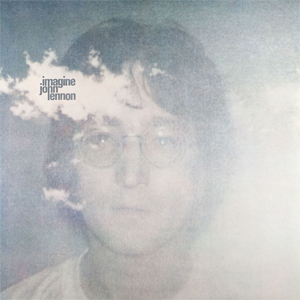
Imagine is the second solo studio album by British musician John Lennon, released on 9 September 1971 by Apple Records. Co-produced by Lennon, his wife Yoko Ono and Phil Spector, the album's elaborate sound contrasts the basic, small-group arrangements of his first album, John Lennon/Plastic Ono Band (1970), while the opening title track is widely considered to be his signature song.

Mind Games is the fourth solo studio album by English musician John Lennon. It was recorded at Record Plant Studios in New York in summer 1973. The album was released in the US on 29 October 1973 and in the UK on 16 November 1973. It was Lennon's first self-produced recording without help from Phil Spector. Like his previous album, the politically topical and somewhat abrasive Some Time in New York City, Mind Games received mixed reviews upon release. It reached number 13 in the UK and number 9 in the US, where it was certified gold.

Roy Harper is an English folk rock singer, songwriter, and guitarist. He has released 22 studio albums across a career that stretches back to 1966. As a musician, Harper is known for his distinctive fingerstyle playing and lengthy, lyrical, complex compositions, reflecting his love of jazz and the poet John Keats. He was also the lead vocalist on Pink Floyd’s “Have a Cigar.”

It's a Shame About Ray is the fifth album by American alternative rock band the Lemonheads, released on June 2, 1992. The album was produced by the Robb Brothers. At the time of principal recording, the band consisted of Evan Dando, Juliana Hatfield and David Ryan (drums). Though not originally on the album, the band's cover of Simon & Garfunkel's "Mrs. Robinson" was added to the album in later pressings after it had become a major worldwide radio hit, and it features a later lineup of the band with Nic Dalton on bass.

You Come and Go Like a Pop Song is an album by The Bicycle Thief, released in 1999 and re-released with a different track listing in 2001.

Pipes of Peace is the fourth solo studio album by English singer-songwriter Paul McCartney, released on 31 October 1983. As the follow-up to the popular Tug of War, the album came close to matching the commercial success of its predecessor in Britain but peaked only at number 15 on America's Billboard Top LPs & Tape chart. While Pipes of Peace was the source of international hit singles such as "Say Say Say" and the title track, the critical response to the album was less favourable than that afforded to Tug of War.

U.K. Subs are an English punk rock band, among the earliest in the first wave of British punk. Formed in 1976, the mainstay of the band has been vocalist Charlie Harper, originally a singer in Britain's R&B scene. One of the first hardcore punk bands, elements of rhythm and blues music - including harmonica - also remained an occasional element of their work.
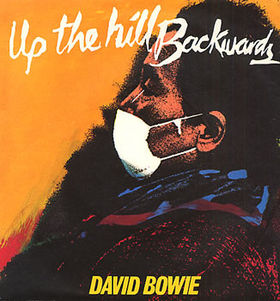
"Up the Hill Backwards" is a song by the English musician David Bowie, released on his 1980 album Scary Monsters . It was later issued by RCA Records as the fourth and final single from the album in March 1981. Originally written under the title "Cameras in Brooklyn", the song was recorded between February and April 1980 at the Power Station in New York City and Good Earth Studios in London. The recording features backing vocalists, guitar contributions from Robert Fripp and acoustic guitar played by co-producer Tony Visconti. Lyrically, the song concerns the struggles of facing a crisis, partially influenced by Bowie's divorce from his wife Angie. Musically, the song contains numerous time signature changes and a Bo Diddley-inspired beat.
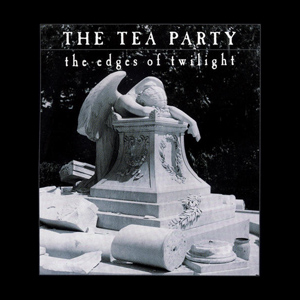
The Edges of Twilight is the third album by Canadian rock band The Tea Party, released in 1995. The album features many instruments from around the world, giving various songs a strong world music flavour in addition to the rock/blues influences evident in the band's earlier releases. Jeff Burrows explained that "basically we wanted to expand upon the initial idea that we tried on Splendor Solis, which was trying to incorporate different styles of world music into our music. So with this album we became more familiar with many more instruments. In our minds we were trying to do for a rock album what Peter Gabriel does to pop by infusing various cultures, percussion and exotic sounds into it."

The Madness is the only studio album by the British ska/pop band The Madness, a short-lived incarnation of Madness. It was originally released in mid-1988, on the label Virgin. The album was produced by the Three Eyes, a pseudonym, whose identities remain a mystery. With the demise of Madness and the group's own label Zarjazz, the Madness were directly recruited under Virgin Records.
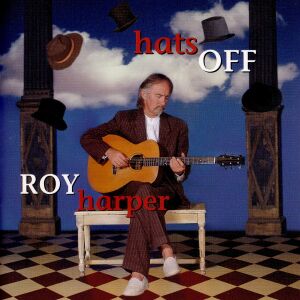
Hats Off is a 2001 compilation album by Roy Harper featuring 14 of Harper's own songs "...accompanied by some of rock's most legendary performers.".
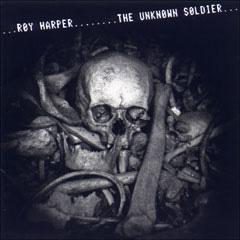
The Unknown Soldier is the tenth studio album by English folk / rock singer-songwriter and guitarist Roy Harper. It was first released in 1980 by Harvest Records and was his last release on the label. Half of the tracks were co-written with David Gilmour of Pink Floyd, who also plays guitar on the album. Kate Bush duets with Harper on one of those tracks.

Commercial Breaks, provisionally entitled 'Commercial Breaks' , is the 18th studio album by Roy Harper. It was recorded in 1977, intended for release in 1978/79, but not officially released in its entirety until 1994.

Bullinamingvase is the ninth studio album by English folk / rock singer-songwriter and guitarist Roy Harper. It was first released in 1977 by Harvest Records. In the United States the album was released as One of Those Days in England.
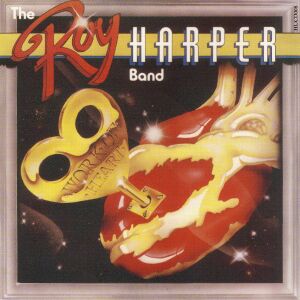
Work of Heart is the 11th studio album by English folk / rock singer-songwriter and guitarist Roy Harper and was first released in 1982.
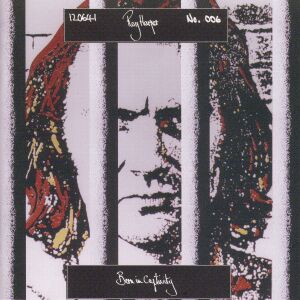
Born in Captivity is the 12th studio album by English folk / rock singer-songwriter and guitarist Roy Harper. It was first released in 1984. Essentially, Born in Captivity is the demo tape for his previous 1982 release, Work of Heart.

Filmworks III: 1990–1995 features the scores for film and advertisements by John Zorn. The album was originally released on the Japanese labels Evva in 1995 and Toys Factory in 1996 and subsequently re-released on Zorn's own label, Tzadik Records, in 1997. It features the music that Zorn wrote and recorded for Thieves Quartet (1993), directed by Joe Chappelle, which was performed by the group that would become Masada; nine cues for Kiriko Kubo's Music For Tsunta (1988); eleven tracks for Hollywood Hotel (1994), directed by Mei-Juin Chen; and thirty-two pieces for advertisements by Wieden & Kennedy.

Man & Myth is the title of Roy Harper's 22nd studio album. Released 47 years after his debut album, Sophisticated Beggar, it is his first studio release in 13 years.
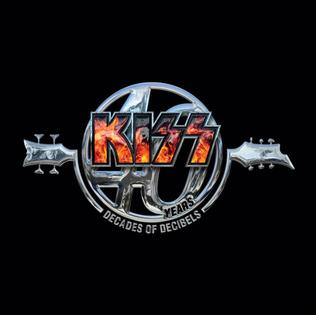
Kiss 40 is a compilation released by Kiss to celebrate the band's 40th anniversary.

Green is the sixth studio album by American rock band R.E.M., released on November 7, 1988, by Warner Bros. Records. The second album to be produced by the band and Scott Litt, it continued to explore political issues both in its lyrics and packaging. The band experimented on the album, writing major-key rock songs and incorporating new instruments into their sound including the mandolin, as well as switching their original instruments on other songs.

















